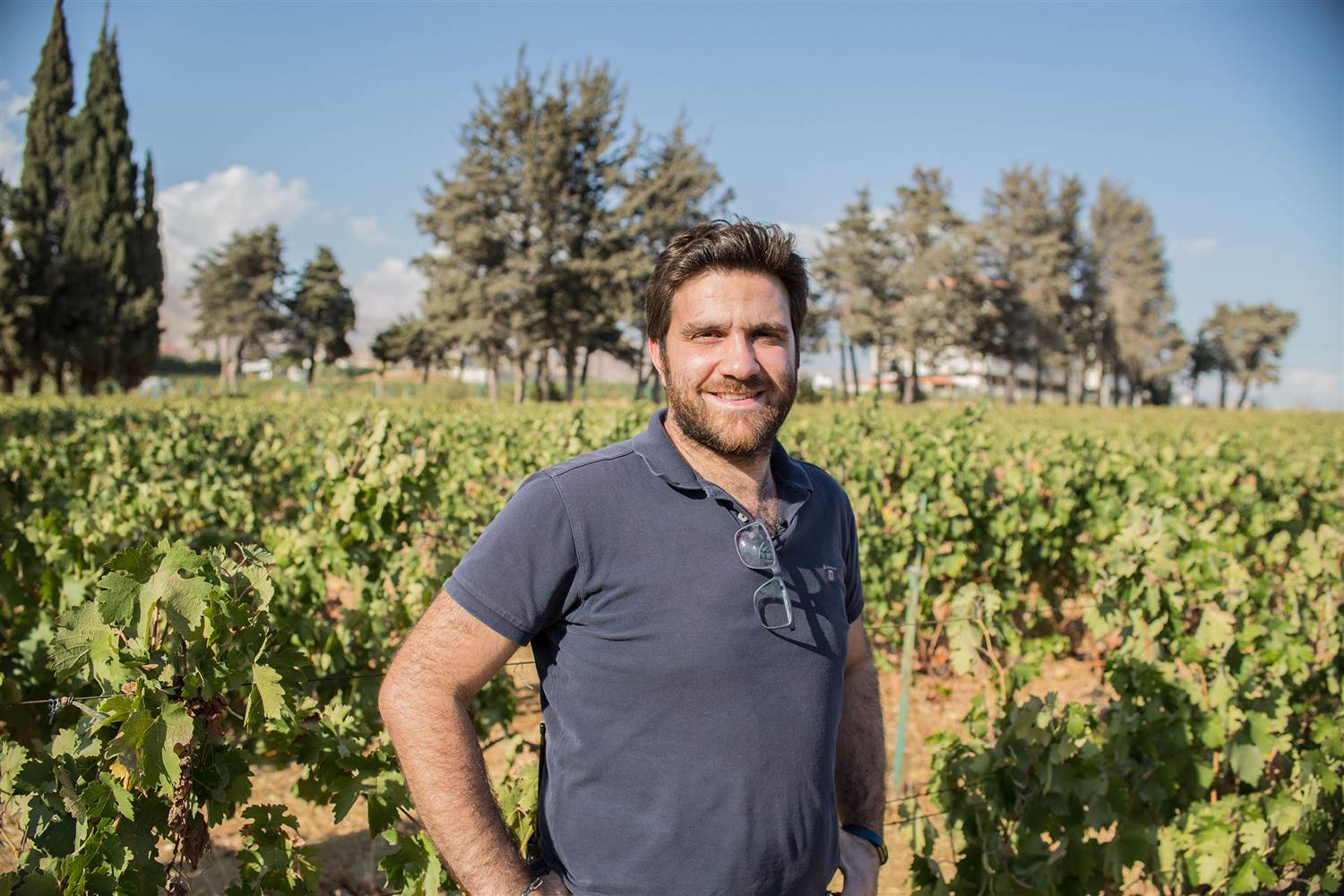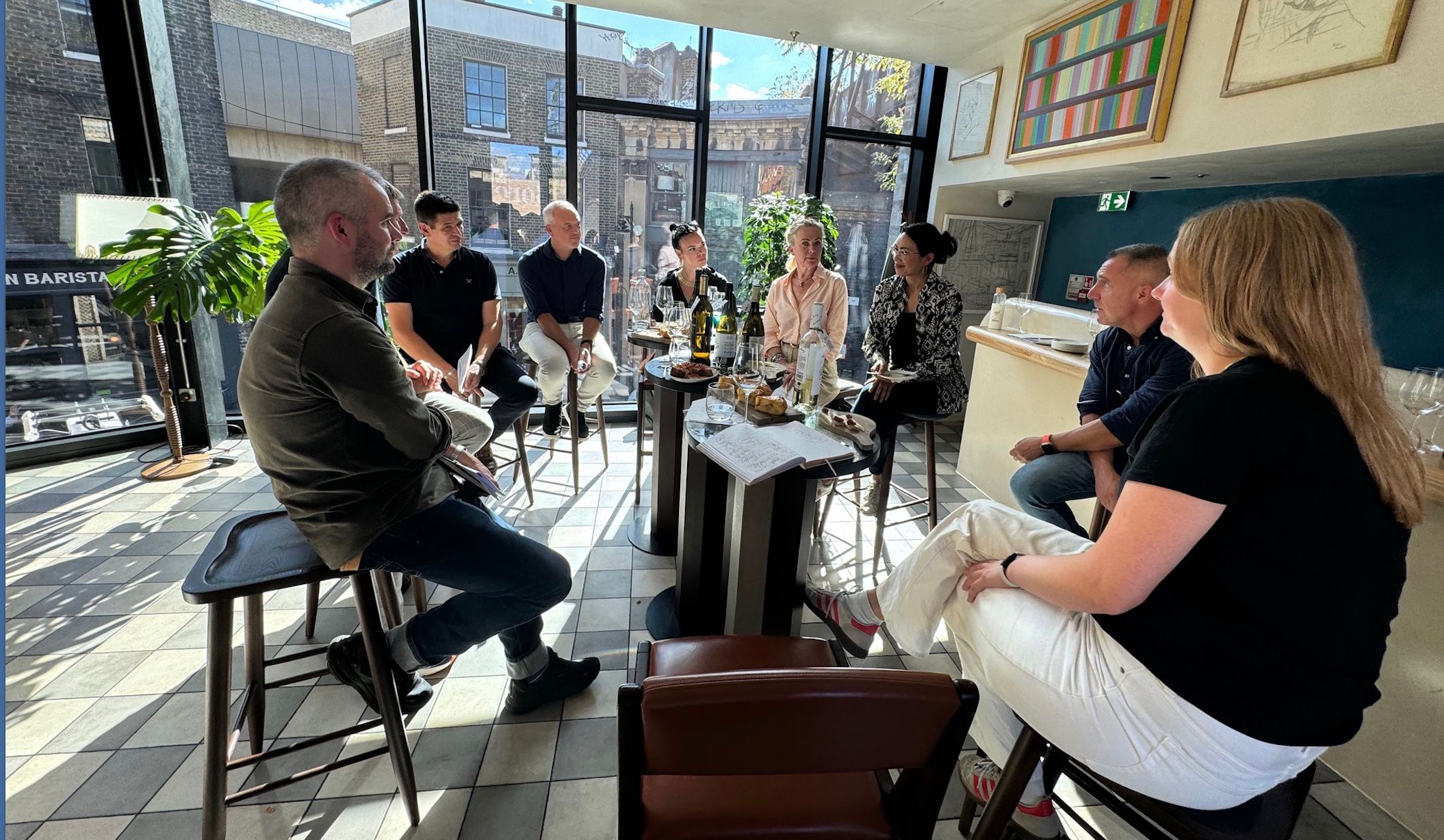If he could bottle the energy, the excitement, yes, the passion that Faouzi Issa has for his Domaine des Tourelles wines, particularly what he is doing in bringing Cinsault back to the heart of Lebanese winemaking, then that would be an amazing bottle of wine to drink. Here he uses his words, rather than his wines, to tell his story.
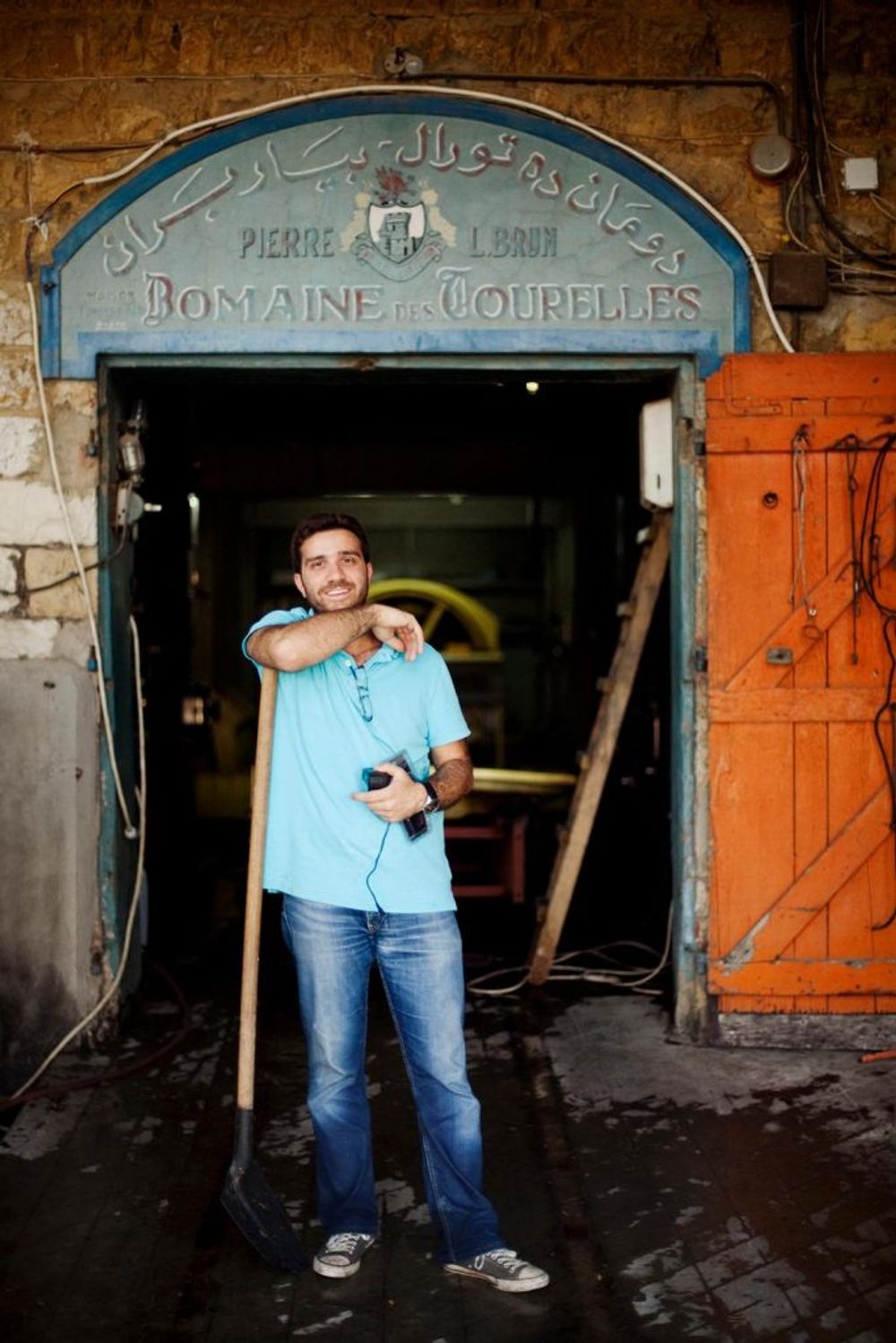
Faouzi Issa at Domaine des Tourelles: One of the world’s most unique and beautiful wineries
Can you explain why Cinsault is such an important grape variety for you to want to work with so much?
Today Cinsault is pretty unique in Lebanon, having once been very popular.It is used in blends, but no-one was using it as a single varietal.It became unfashionable and much of it was taken out over the last 40 years and replaced with more international varieties like Cabernet Sauvignon and Syrah.At Domaine des Tourelles, we decided to go back to our roots, bringing back the old style of wines that used to be produced in our region.
Our vines are old, with an average age of 50, which is what really encouraged me to go all the way and produce a wine from 100% Cinsault.
What characteristics do you think make the Lebanese style of Cinsault different to say France and other countries where it is grown?
Great question! The high altitude is our secret – our hot weather but fresh nights combine to give Cinsault the right balance.Our Cinsault has a good natural acidity with great colour, compared to other regions. In addition the many stone fruit notes and elegant spices showcase our ‘Mediterranean muscles’. We make elegant Cinsault which in my opinion is the same standard as fine Pinot Noir from Burgundy.
You are working with both very old and also new Cinsault vines?
Yes, we have Cinsault that was planted a century ago, but I am also constantly planting new vines to keep up with demand.It’s a very resistant variety and has practically no problems in terms of environmental adaptation.The only trick is to get a balanced yield and not over production.
We make one 100% Cinsault wines from our old vines, with the first vintage in 2014.We produce around 20,000 bottles of that.
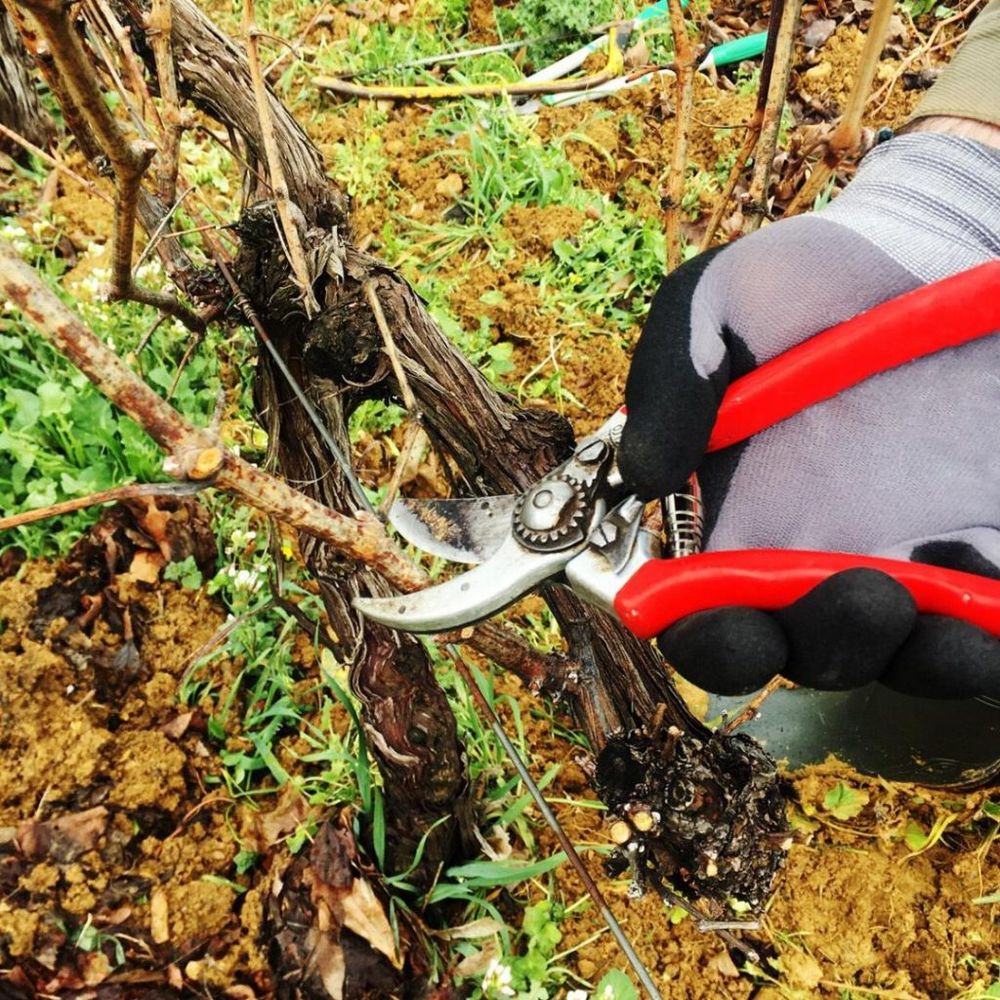
Explain how you make your Cinsault wine in terms of picking times and what you are looking for in the grapes?
We manually harvest the grapes and use concrete tanks for fermentation using indigenous yeast.We mechanically extract using mainly pumping over and délestage.We maintain a temperature of 25oC during fermentation, so no extreme temperatures.We age the wines in neutral old casks, filter the wines and then fine using vegan products.
How would you describe them in terms of style?
Smooth and elegant. This wine goes with all types of food and even all types of consumers!
What do you hope they can do for Domaines de Tourelles, but also for Lebanese wine in export markets?
These wines are proving to be a huge attraction in all sophisticated markets.It’s a great door opener for Lebanese wines in all our export markets.People want to try a wine that is typically Lebanese and, with Cinsault being the closest thing we have to an indigenous red variety, I believe this is it.
They are being received amazingly well – people are even trying to allocate stock from future vintages before even tasting it – crazy!\
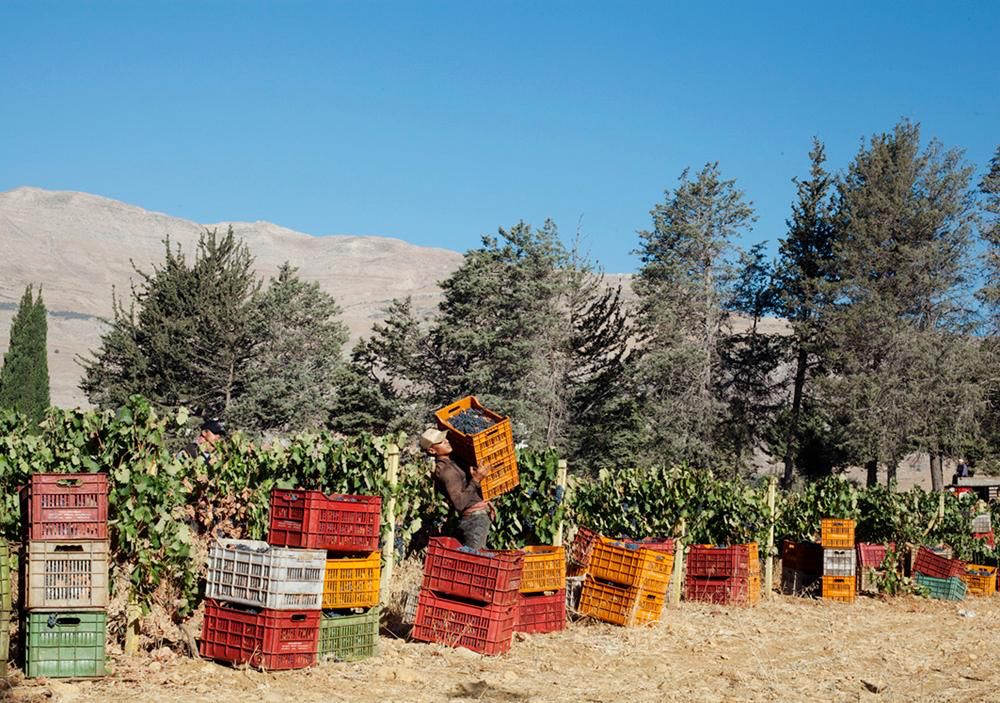
Lebanon’s hard climate means producers have to be careful which varieties they work with
Which varieties do you think are best suited to the Lebanese climate and soils?
I would single out three:
- Well, of course,, Cinsault – it helps make wines with great structure in the Bekaa Valley. It has also proved that it can give great quality at high altitudes.
- Syrah – this is an all-time great variety for Lebanon. I would go so far as to say it’s the most suitable grape for our climate and soil conditions.
- Viognier – I love Viognier in the Bekaa Valley; it gives a mix of floral and fruity characteristics with great balance and acidity. This variety loves high altitude and we have plenty!
Tell about more about the rest of your range and how that is evolving and adapting for international markets?
Domaine des Tourelles Red: this is the blended wine and fermented only in concrete vats. One of the best good value entry level wines. Not expensive and has a great potential age. It’s very much a Mediterranean style with Bekaa valley genes.
Domaine des Tourelles White: this is the wine that is showing the most growth over the last two years. We produced 30% more in 2017 compared to 2016. There is a very high demand locally and internationally. All this is due to its price/quality ratio! Normally Lebanese whites are relatively expensive due to scarcity in white grape varieties (until recently white varieties represented only 8% of plantings).
Domaine des Tourelles forecasted the high demand and planted abundantly during 2009 and 2013, which gave us the capacity to grow and get ahead of the competition. I really like this white because, like the rest of the range, it is made with very low intervention. It means the notes are very expressive, varietal and typical of the Bekaa valley. Acidity is well present, but not over excessive because it is 100% natural.
Domaine des Tourelles Rosé: still a very growing wine in our range. Our rosé has a complete structure with an amazing summer bouquet.
Marquis des Beys Red: I call it the weapon in our range. This wine shows the great the potential of Lebanon in general, and Domaine des Tourelles in particular. This Cabernet/Syrah blend, aged in French oak barrels, gives superb balance. The Syrah with its diverse notes and straight spices is blended equally with the beautiful high altitude Cabernet Sauvignon giving the right back bone to the bottle.
Marquis des Beys Chardonnay: a very unique 100% Chardonnay from our region…
Syrah du Liban: a 100% Syrah showing the potential of what we can do with this variety. We decreased the price of this bottle in the UK since January 2018 to help it grow and build more visibility in the market.
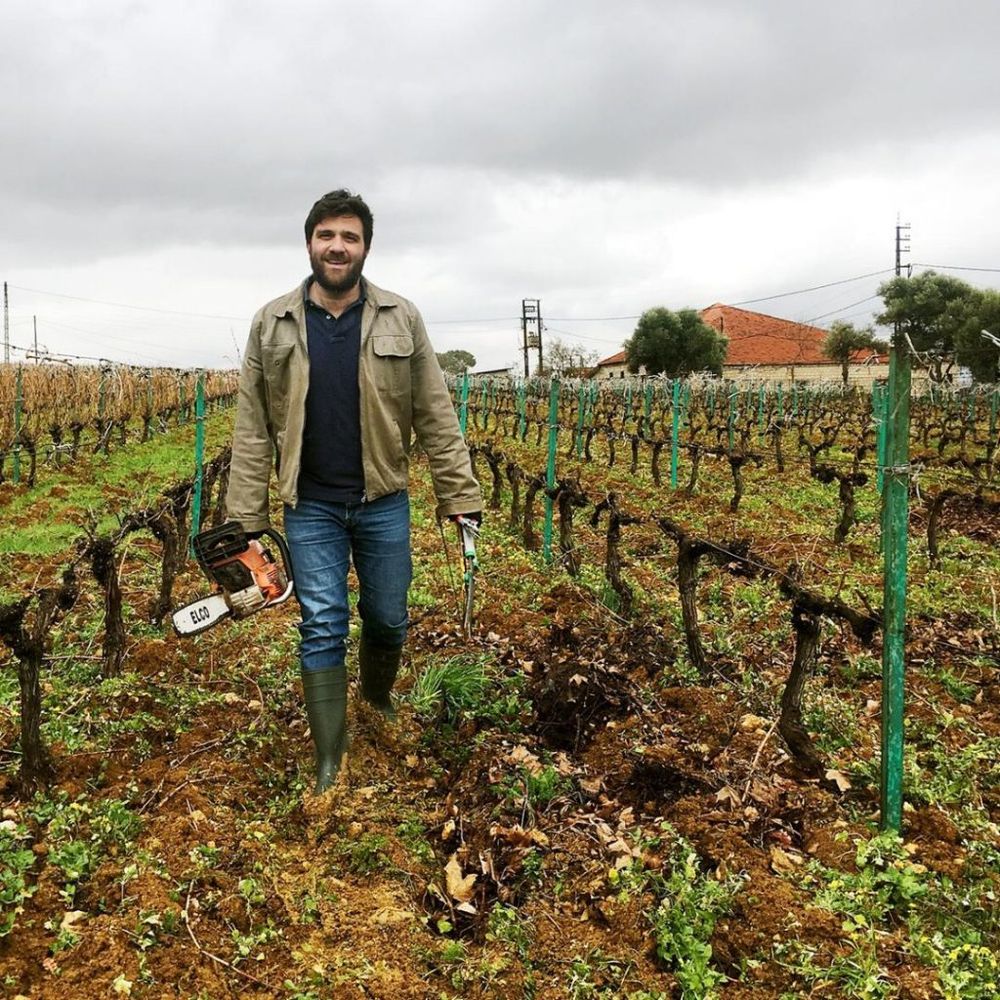
Faouzi Issa says the response to his Cinsault wines by buyers has been “amazing”
Which of your wines work best in the UK?
Domaine des Tourelles Red, because it is one of the best quality vs price wines in the whole region. Plus British buyers love the fact that we use concrete tanks and have minimal intervention wines.
Our Old Vines Cinsault is the growing star. I expect it to be the top seller in the future! That’s if we can produce more volume.
How do you work the UK market? What is the best way to get more awareness and knowledge of your wines?
I work this market very closely.I have a highly qualified brand ambassador, Madeleine Waters (who previously ran the Wines of Lebanon account in the UK) to support and create a healthy link between me as the producer, the market and my distributor.
I make multiple visits per year, to keep the momentum high. I try to visit major cities and create awareness everywhere, particularly in key cities like London, Bath, Bristol, Manchester and into Scotland.
I make sure I keep regularly in contact with the good press and if budget is available I invite some key players to Lebanon, including wine journalists, key sommeliers and wholesalers.
The UK market needs high investment to build the brand and the awareness. However, the results can spread to all Europe and even the world. We get to open up lots of new markets because we are successful in the UK.
Do you think Lebanon is well placed to benefit from the growth and interest in emerging wine regions, different wine styles, varieties?
Big time… we have:
- The history
- The story
- The geographical advantage
- The high altitude and great weather
- The controversial status of the society
- Lebanese community everywhere on the map, high diaspora
- The cuisine we have! it plays a major role
- And most important , THE PEOPLE! We like to spread the word about how good our products are.
- Domaine des Tourelles is available in the UK through Boutinot and if you would like more information you can contact Faouzi Issa at faouzi@domainedestourelles.com and Madeleine Waters at madeleine@weareco.co.uk.
